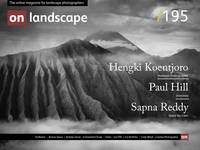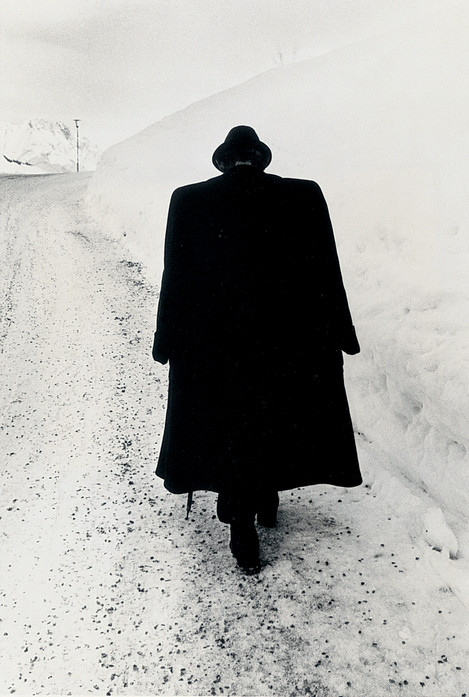About Contemporary Photography

Paul Hill
Paul Hill's early career in the 60s and early 70s moved from newspaper reporter to photojournalist. In 1974 he moved to academia, first as Lecturer and as head of Creative Photography at Trent Polytechnic.

Tim Parkin
Amateur Photographer who plays with big cameras and film when in between digital photographs.
For the Meeting of Minds conference last year, we printed off a picture for Paul Hill, but sadly it didn't arrive in time for the exhibition. Paul asked us to donate it to the Stills Gallery in Edinburgh. Whilst dropping it off, we had a quick chat with Paul and his partner, Maria Falconer, about art and contemporary photography and some of the subjects he's approaching in his rewrite of "Approaching Photography".
Tim Parkin (TP): I wanted to talk about this possible disparity between what could be called your typical ‘hobby’ practitioner of photography and the more academic/contemporary side of photography (pictorial, romantic vs ‘new’ ways of looking at photography). I was wondering if you still see this dichotomy in photography? Or do we get hobbyists transcending the pictorial or contemporary/fine art/academic photographers embracing a bit of beauty now and again?
Paul Hill (PH): There is definitely a cross over, and there always will be. It’s a personal problem for me, actually sticking to one subject matter. I think it just negates so many possibilities for making interesting pictures or stretching yourself as a photographer. You can end up essentially illustrating your hobby or your interests which makes it very difficult to change tack or make quantum leaps. In workshops, we come across a lot of people who you would say are mainstream hobbyists but they take on board and embrace the more challenging ideas that we talk about. I think they haven’t previously, largely because they haven’t had an art or photographic education, and so to be put in these situations is unique for them. It’s the first time and a lot of them really take to it. Because it’s new, it’s different.
TP: Is it essentially a lack of exposure and a lack of knowledge? So, are they essentially receiving mixed messages from the vernacular use of landscape?
PH: What I was trying to say in the talk at the Meeting of Minds conference was, why are you here, why are you doing it? Are you aware of all the possibilities that are there to explore? Express something that might be your own involvement rather than looking at templates and matrices. These templates have been provided by talented people who found their own way there and were innovative for their time or expressed something which was more than just the information that’s in front of them when they photograph. Photography appears very easy but the more you get into it is a lot more complicated, or at least it can be. Essentially, on a surface level, you can make a picture quite easily.
I put the picture of a butterfly made by my iPhone on Facebook the other day. You may have seen it, Tim. I saw these butterflies which were tortoiseshells and painted ladies, down this footpath. So, I tried to get close with the iPhone and I did and I got them. The results are absolutely stunning. You would not even be able to get that quality if you used a macro and a flash. A normal lens would not be able to have done it because of the minimum focusing distance, so you wouldn’t be able to get close enough, and all the rest of it. I’m writing a new edition of my book “Approaching Photography” and I’m using this example of how photography has moved on since 1982 when the first edition came out.


